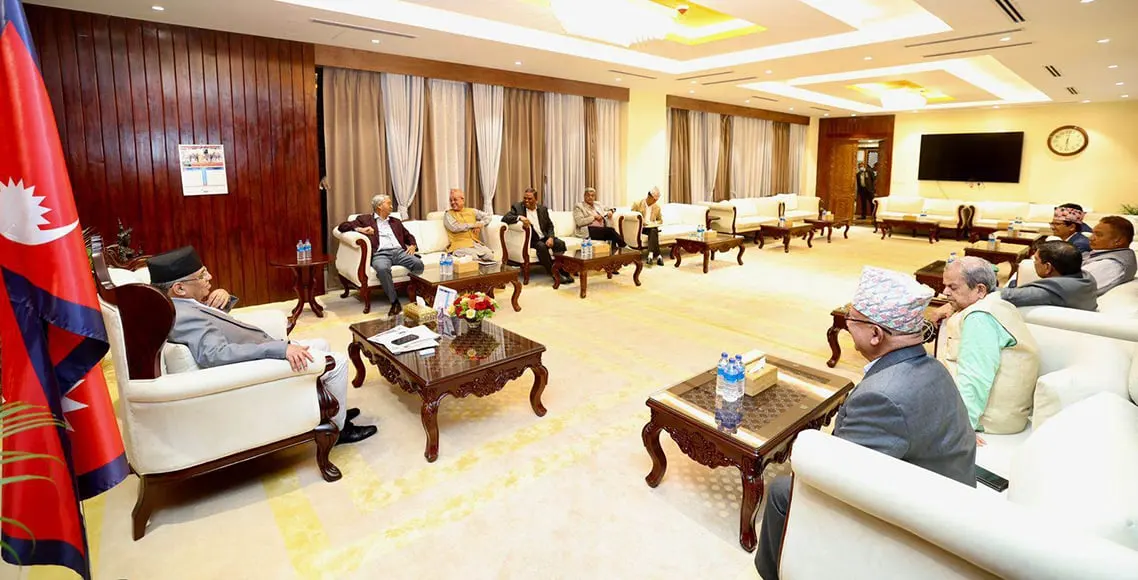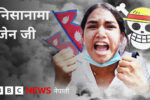KATHMANDU: Despite Janamat Party, led by CK Raut, holding ministerial positions in the government, signs of strain within the ruling coalition are becoming increasingly apparent.
While Raut himself may not be inclined to leave the government, maintaining the status quo for his ministers has become uncomfortably challenging amid growing contradictions.
Interestingly, the exclusion of Raut from a meeting of the ruling coalition on January 14 further fueled tensions.
The Baluwatar meeting, intended to strategize for the National Assembly, witnessed Raut’s absence after he diverged from the coalition’s candidate selection process in Madhesh and Lumbini.
The rift intensified as the Janamat Party submitted an eight-point memorandum, urging swift action to revive government-owned industries and generate employment.
However, beneath the surface of economic concerns, a deeper dissatisfaction within the party appears to be the driving force behind this decision.
Sources suggest that Janamat Party aims to highlight internal factionalism within the coalition should the government face a potential exit.
Despite an initial understanding that Dahal would serve as the Prime Minister for the first two years, followed by Nepal and Deuba each holding the position for one and a half years, recent developments suggest a deviation from this arrangement.
Expressing his dismay at the coalition’s approach, Raut stated, “The coalition parties have tried to make the National Assembly a ‘dustbin’ to collect the discarded characters. This is not acceptable to us.”
The underlying conflict seems to stem from a power struggle in Madhesh, where Raut aspired to become the Chief Minister.
Seeking assurance from Prime Minister Pushpa Kamal Dahal Prachanda for the coveted position, the Janamat Party faced resistance from the rival Janata Samajwadi Party.
Prime Minister Dahal is said to have rejected Raut’s request, prompting discussions about alternative options.
In the recent Bara by-election, Raut fielded a separate candidate against the coalition’s nominee, Upendra Yadav.
Despite negotiations from political leaders, Raut remained firm, further straining the alliance.
Discussions within Janamat Party are underway regarding future political decisions, as some leaders express concerns about the party’s legitimacy amidst prolonged disagreements within the ruling coalition.
Deepak Sah, Vice Chairman of Janamat Party, remarked, “Things are not being done according to the spirit of the Constitution.”
Chairman Raut, meanwhile, voiced his opposition to the ruling coalition’s working style, handing over written points of discontent to Prime Minister Dahal.
Raut’s recent procession in Maitighar Mandala during the English New Year, labeled as ‘Dhoti Diwas,’ emphasized his frustration with decisions imposed by senior leaders.
If Janamat Party exits the ruling alliance, uncertainty looms over the future dynamics, with potential clashes between Prime Minister Dahal after the National Assembly elections.
Meanwhile, the Unified Socialist Party has formally requested a comprehensive report on the progress achieved during its tenure in the government, a demand raised during the recently-concluded Standing Committee meeting.
Tensions are rising within the Unified Socialists due to the disappointment of securing only two out of 19 seats in the National Assembly.
In addition to internal party dynamics, concerns are surfacing about the power-sharing agreement among Prime Minister Dahal, Nepali Congress President Sher Bahadur Deuba, and Madhav Kumar Nepal regarding the leadership transition.
According to a senior party leader, criticism has emerged within the party concerning the agreement to raise the direct spending limit of the Indian Embassy to Rs 200 million during the visit of Indian Foreign Minister S. Jaishankar.
Despite an initial understanding that Dahal would serve as the Prime Minister for the first two years, followed by Nepal and Deuba each holding the position for one and a half years, recent developments suggest a deviation from this arrangement.
Madhav Nepal believes that Dahal and Deuba are diverging from the agreed-upon path, jeopardizing his prospects of assuming the role of Prime Minister.
There is also growing apprehension among coalition leaders that Prime Minister Dahal and Deuba may be maneuvering to secure the Prime Minister’s position for themselves, deviating from the initially agreed-upon plan.
As a result, Madhav Nepal is strategically increasing pressure within the alliance to safeguard his leadership aspirations.
This concern has been voiced at the highest echelons of the party, with Nepal expressing dissatisfaction during a Secretariat meeting on Monday.
His grievance centered around the perceived diminishing importance of his opinions within the alliance, emphasizing that Prachanda and Deuba are sidelining him in crucial discussions.
According to a senior party leader, criticism has emerged within the party concerning the agreement to raise the direct spending limit of the Indian Embassy to Rs 200 million during the visit of Indian Foreign Minister S. Jaishankar.
Unified Socialist’s Jhalanath Khanal and other leaders raised objections to this agreement.









Comment